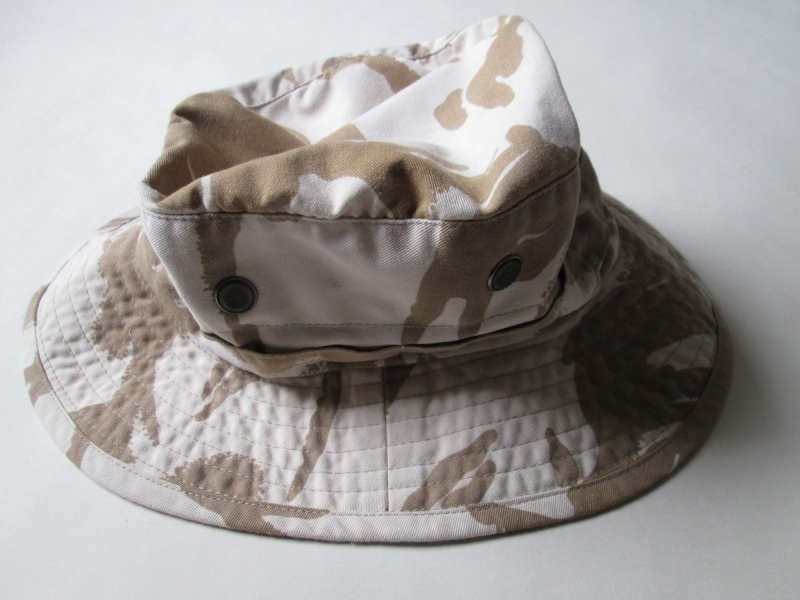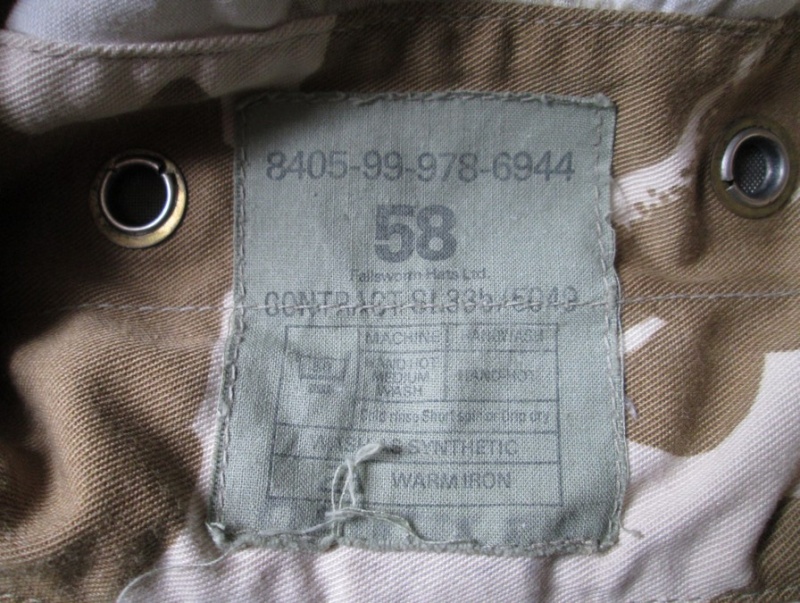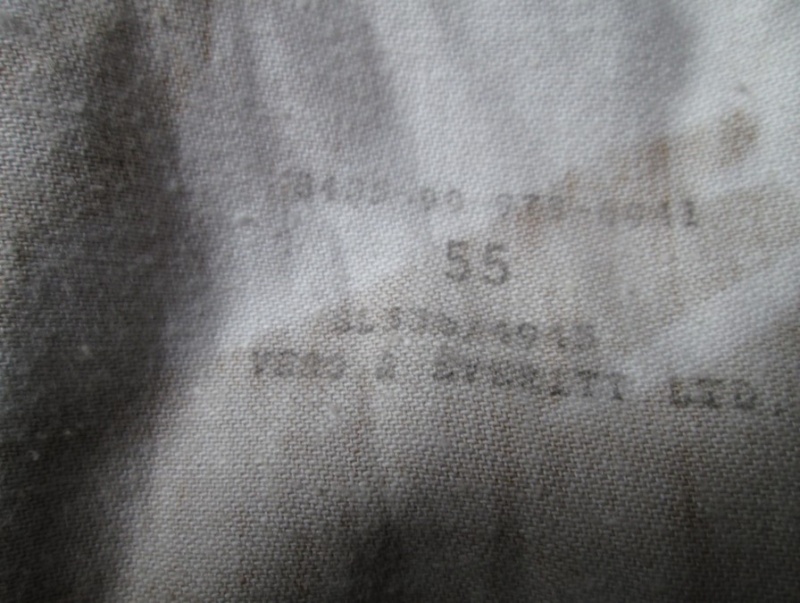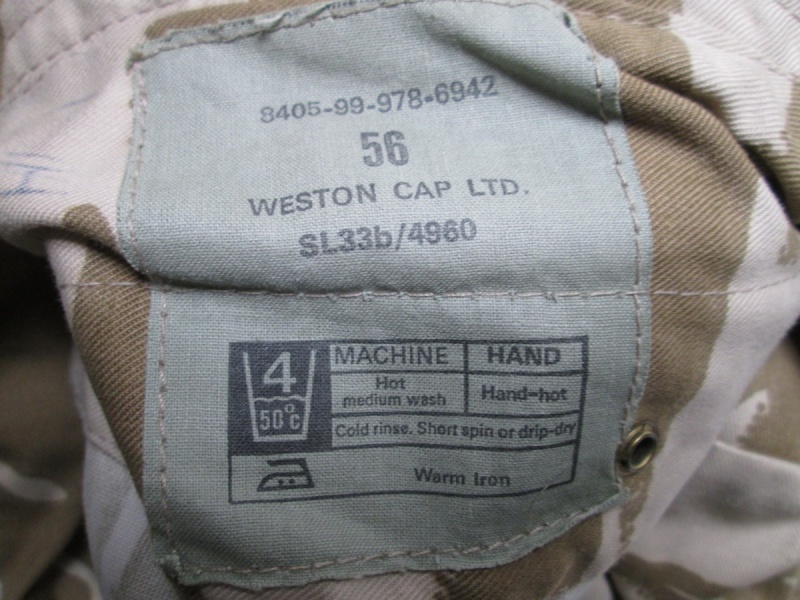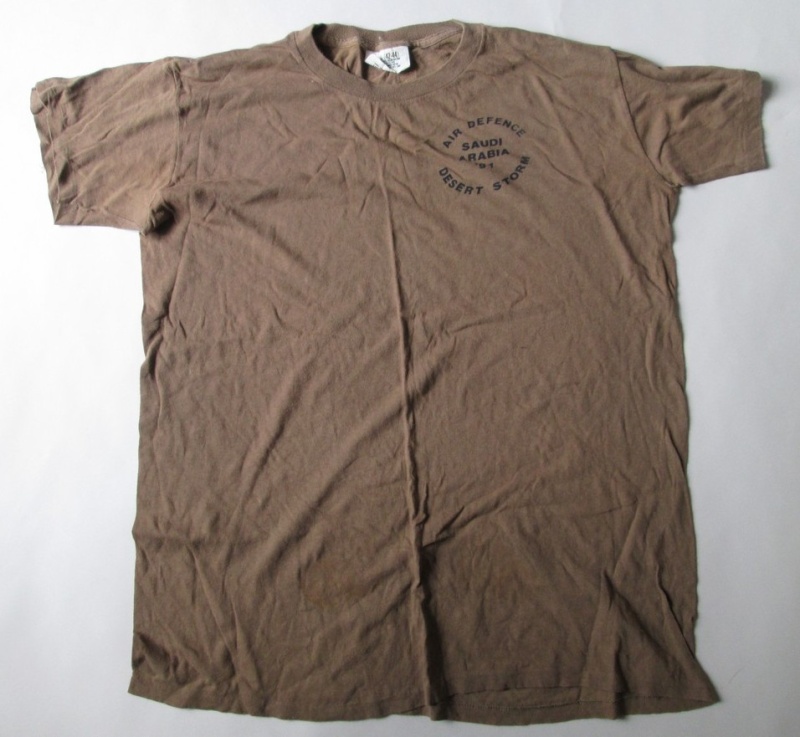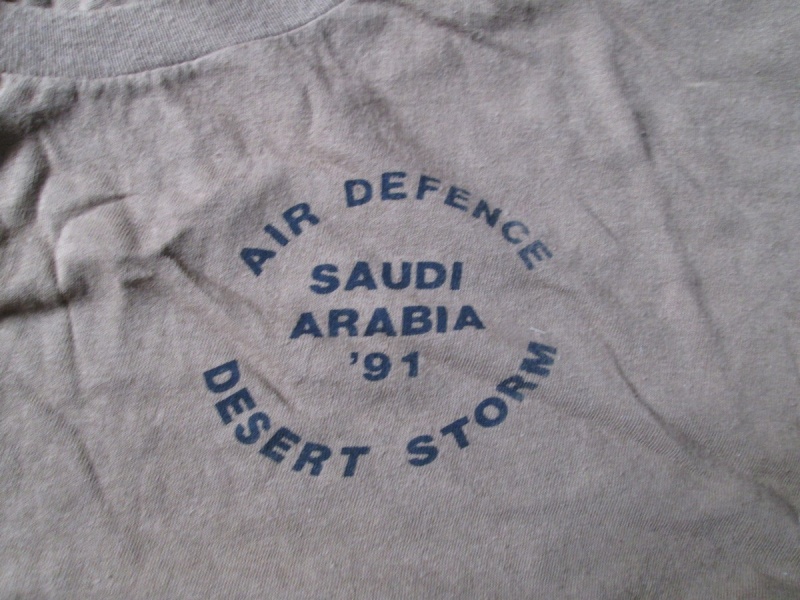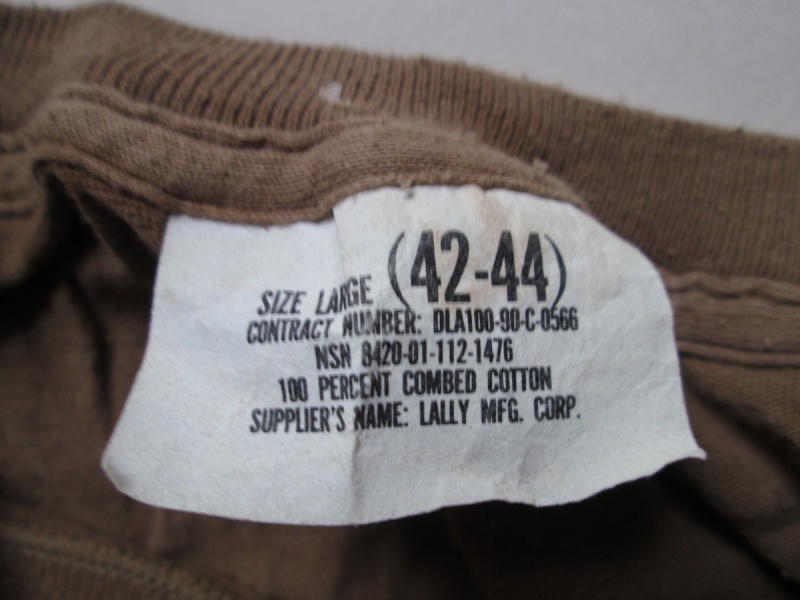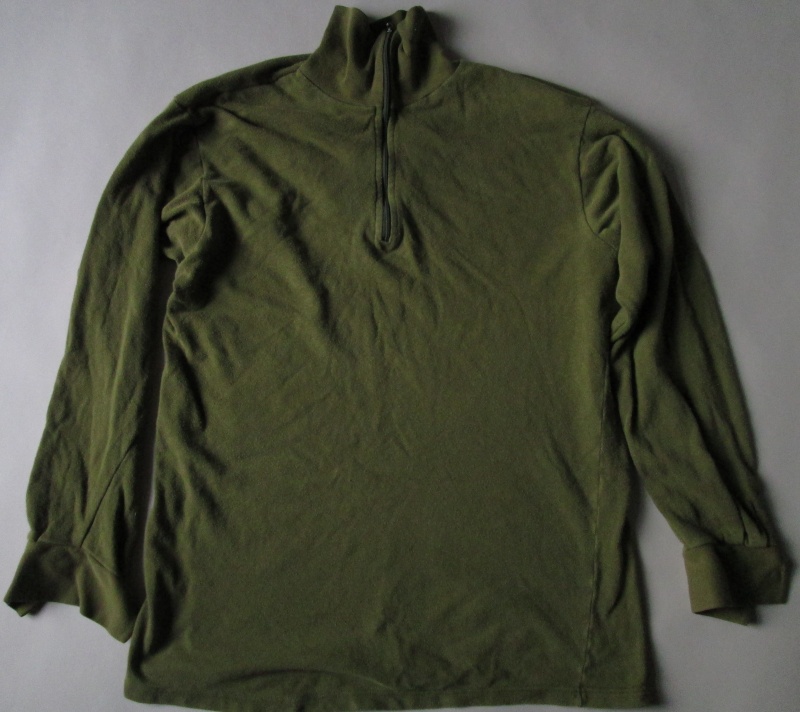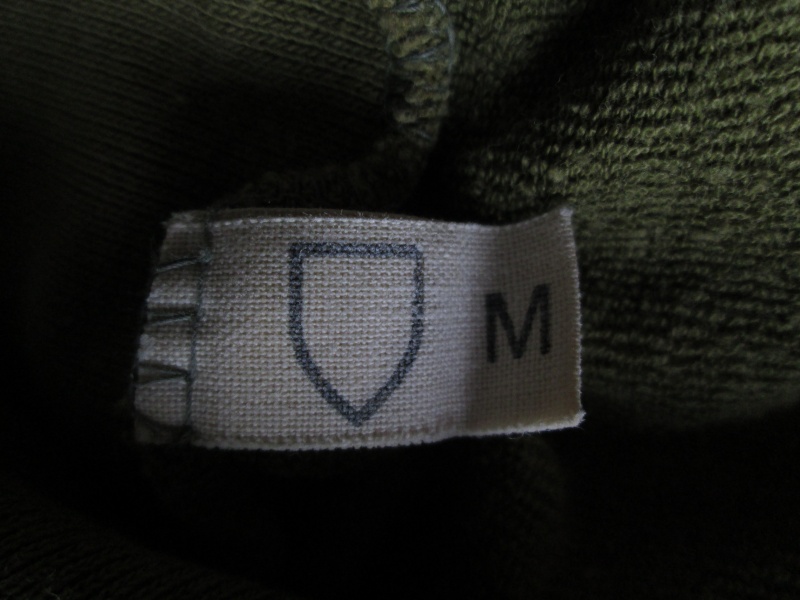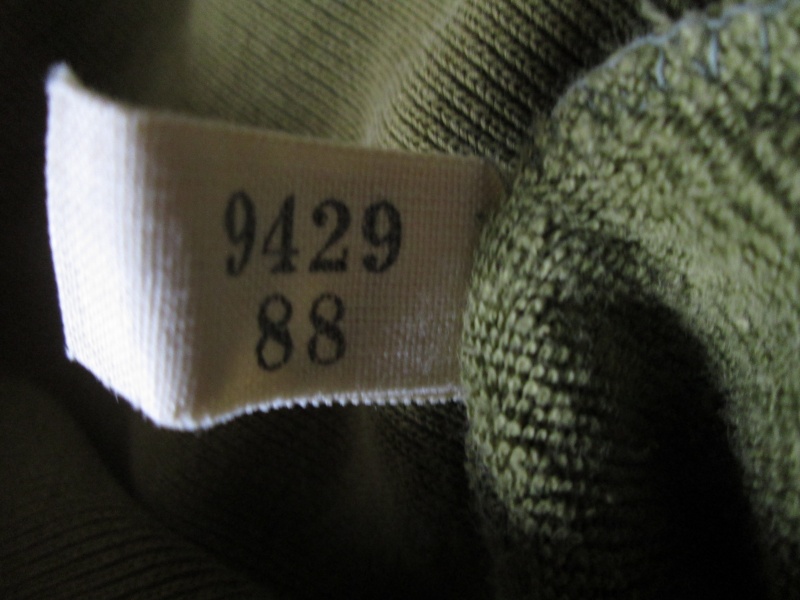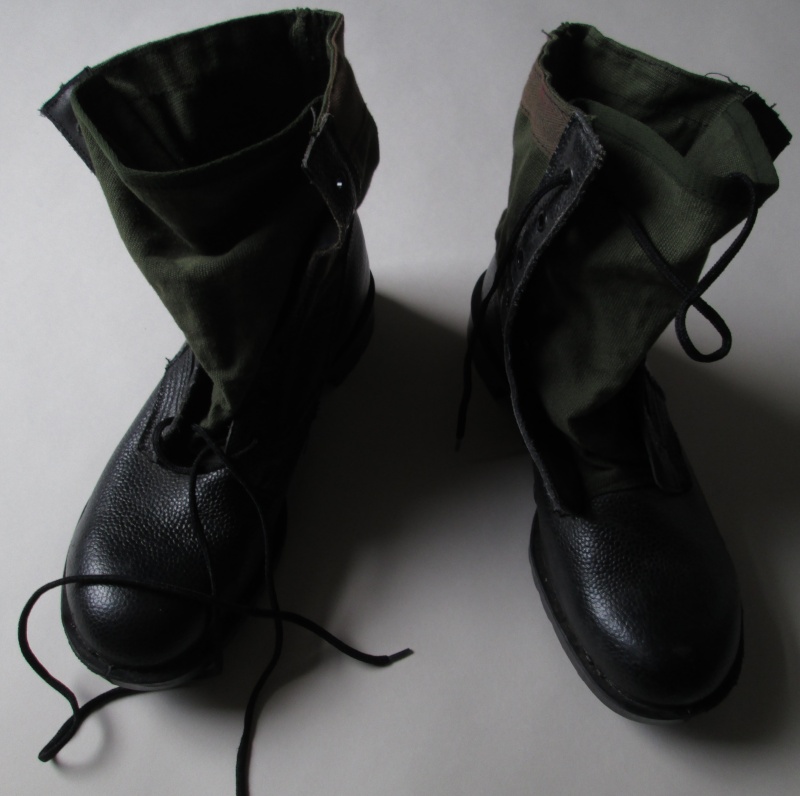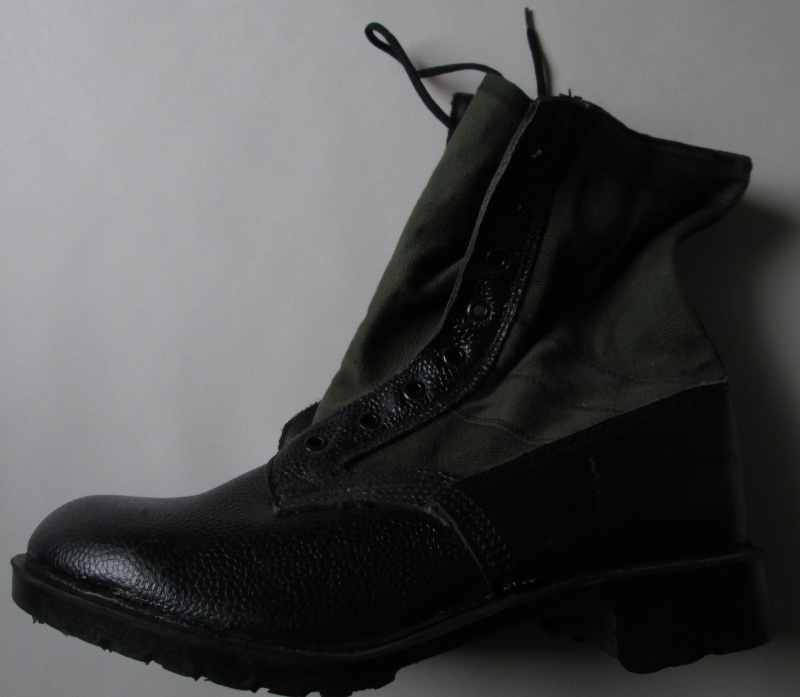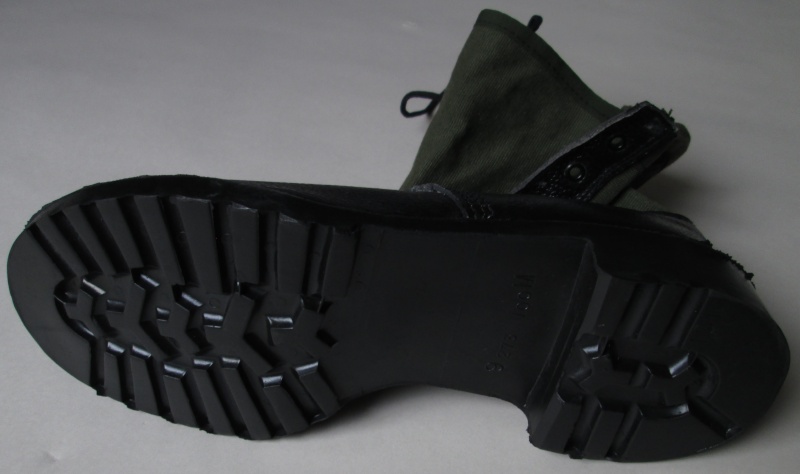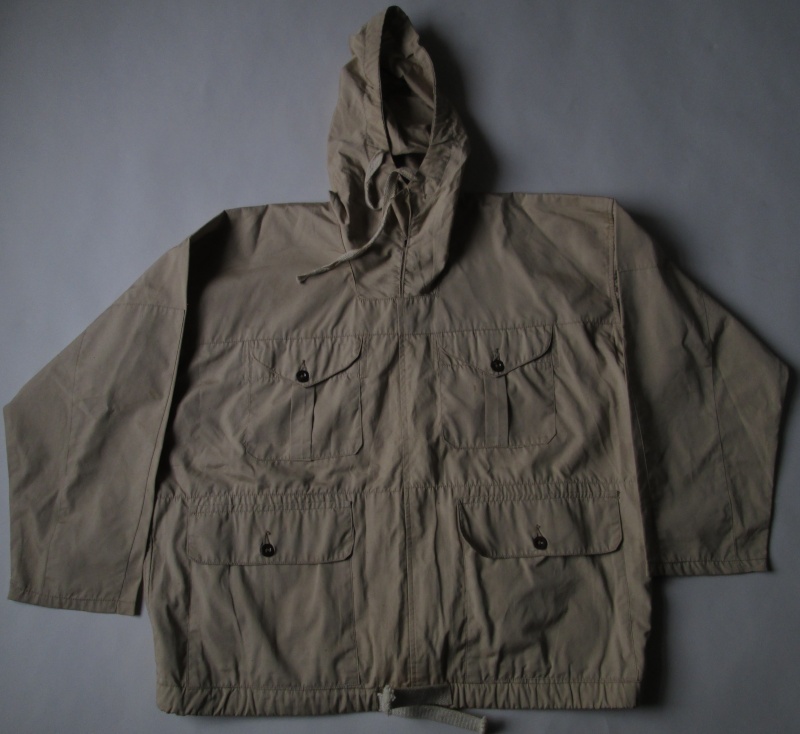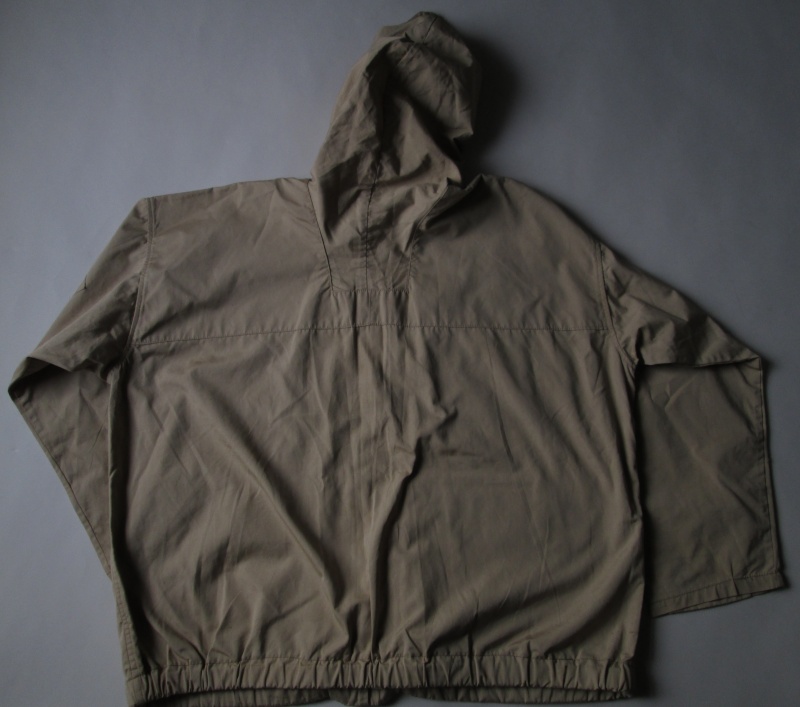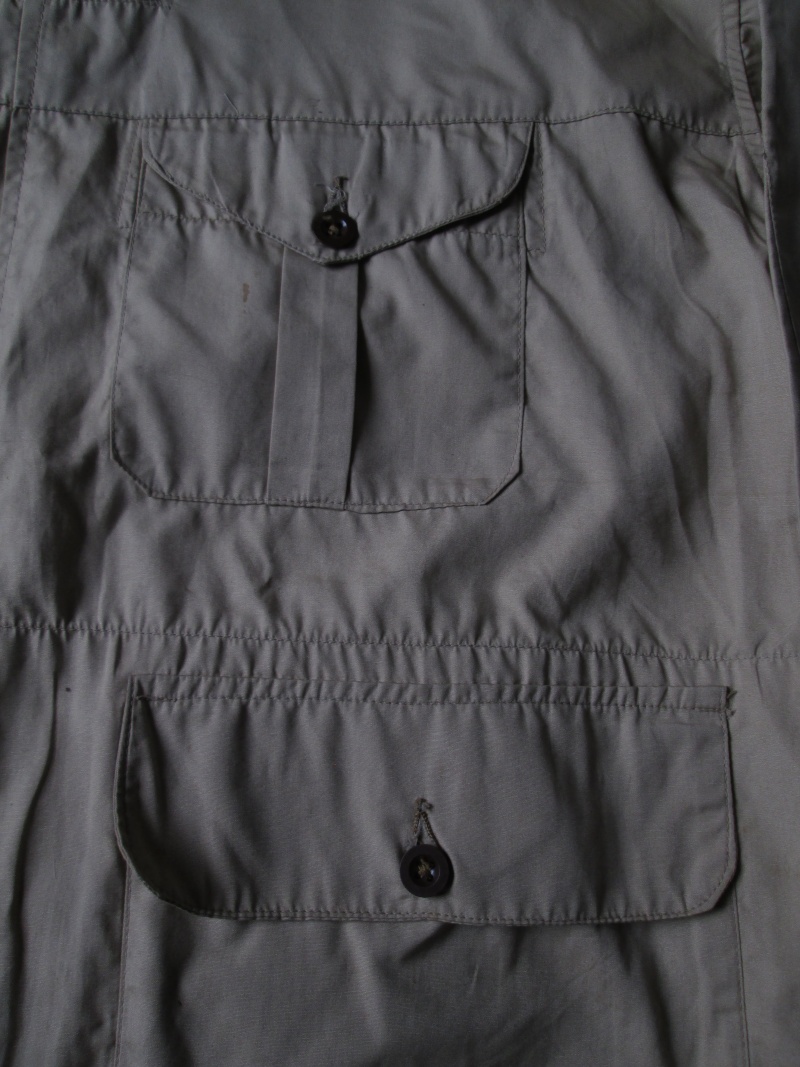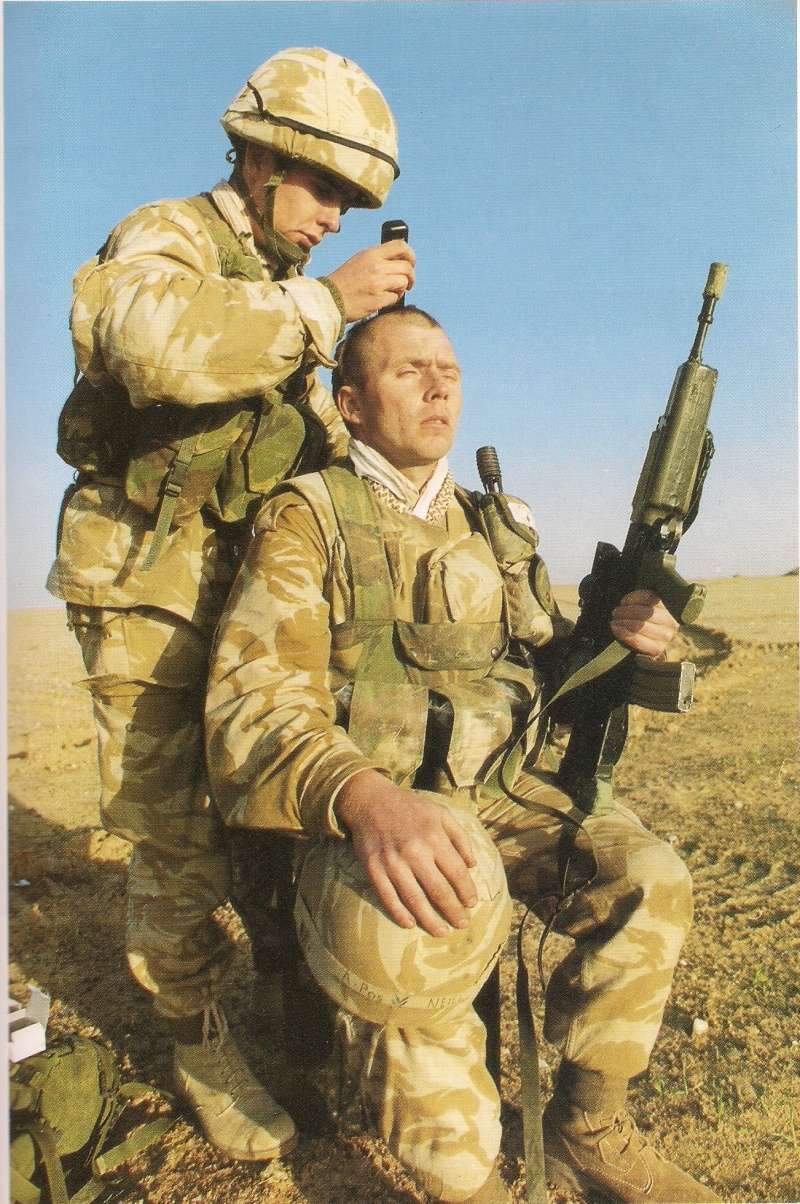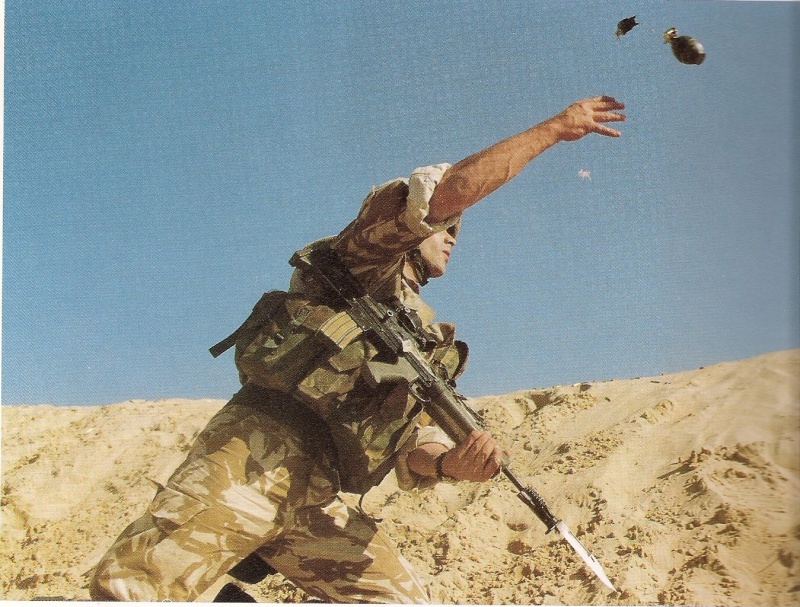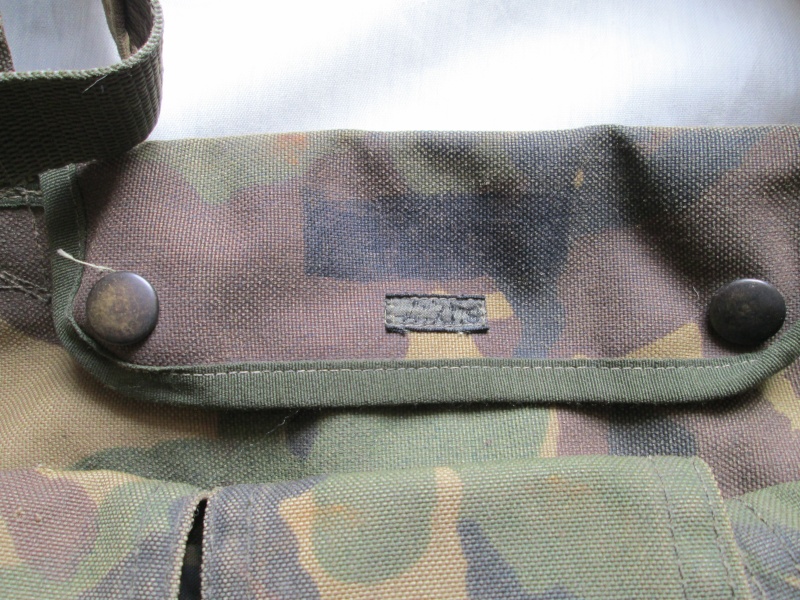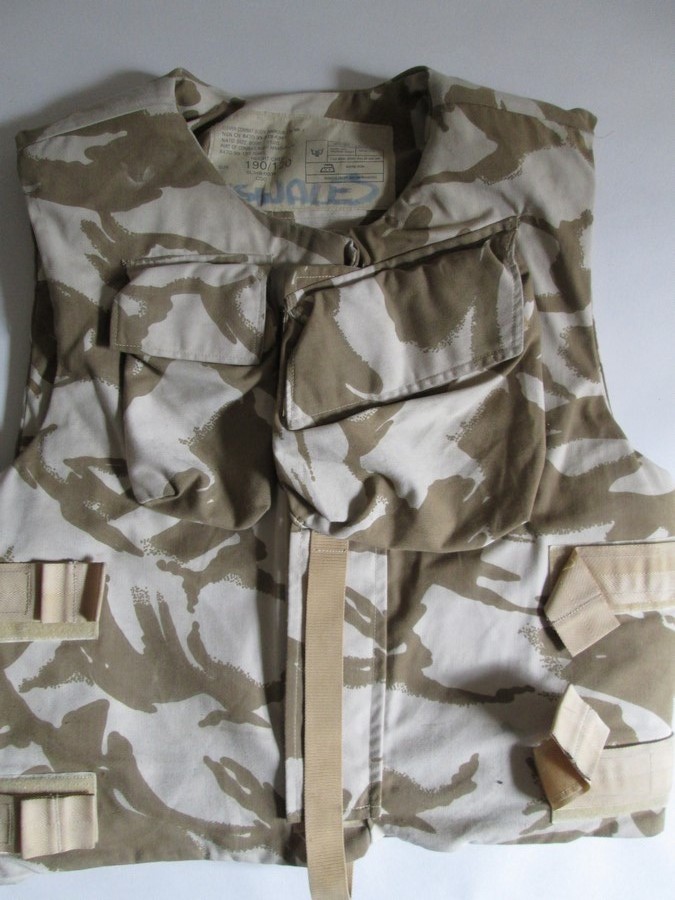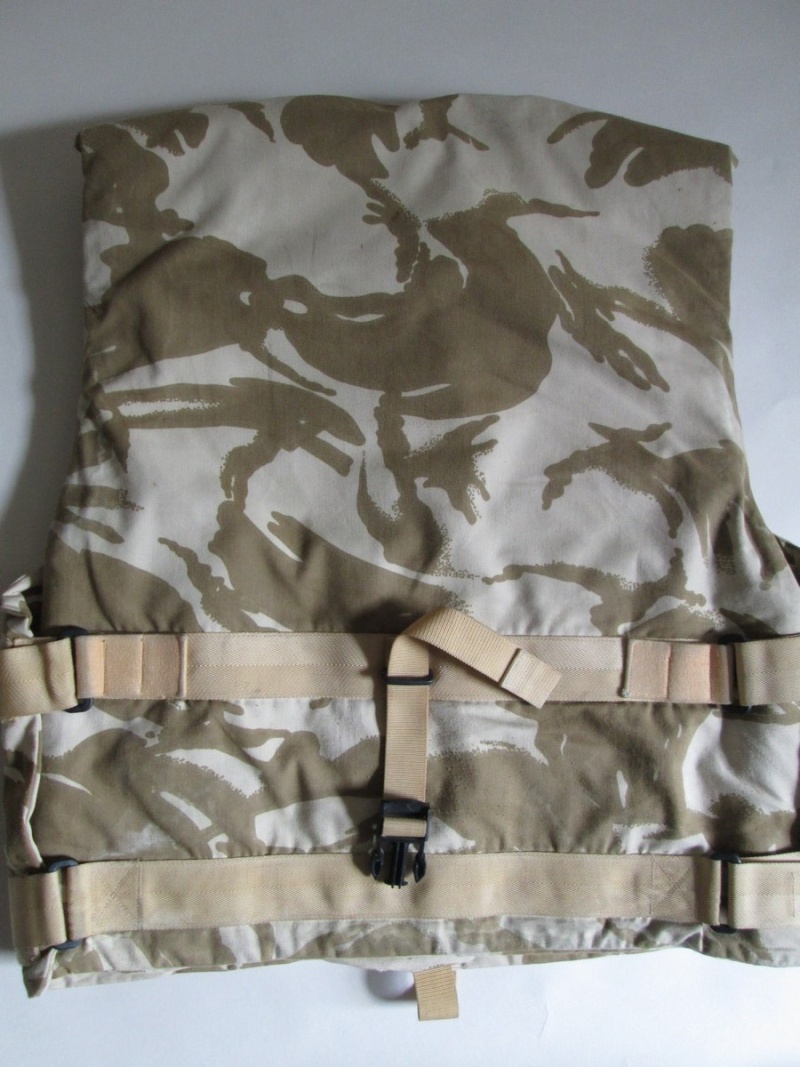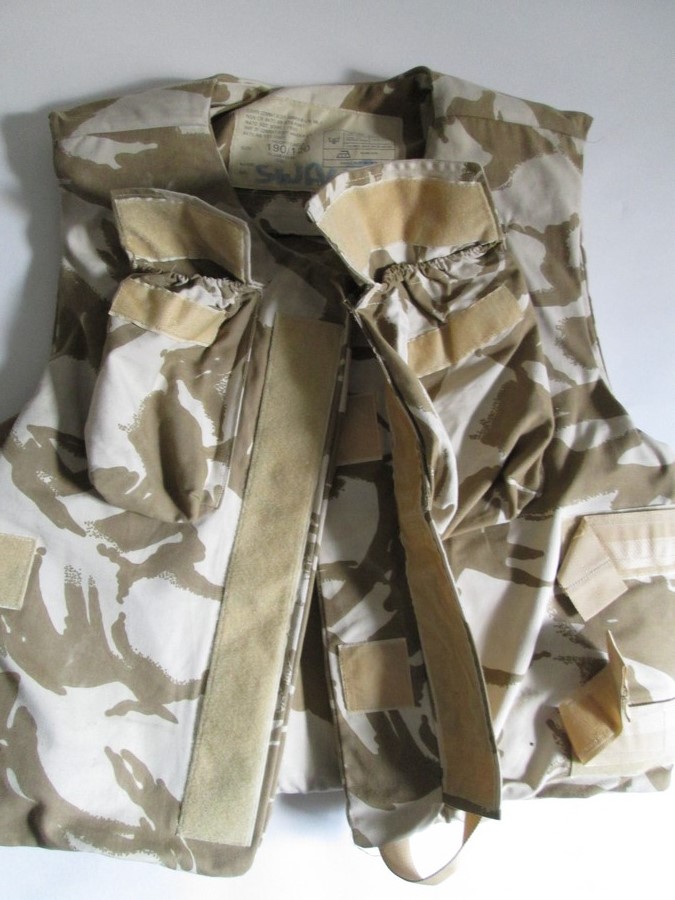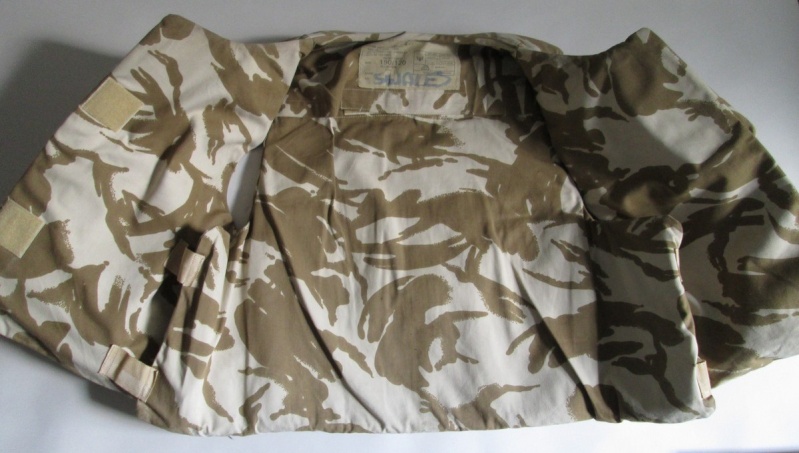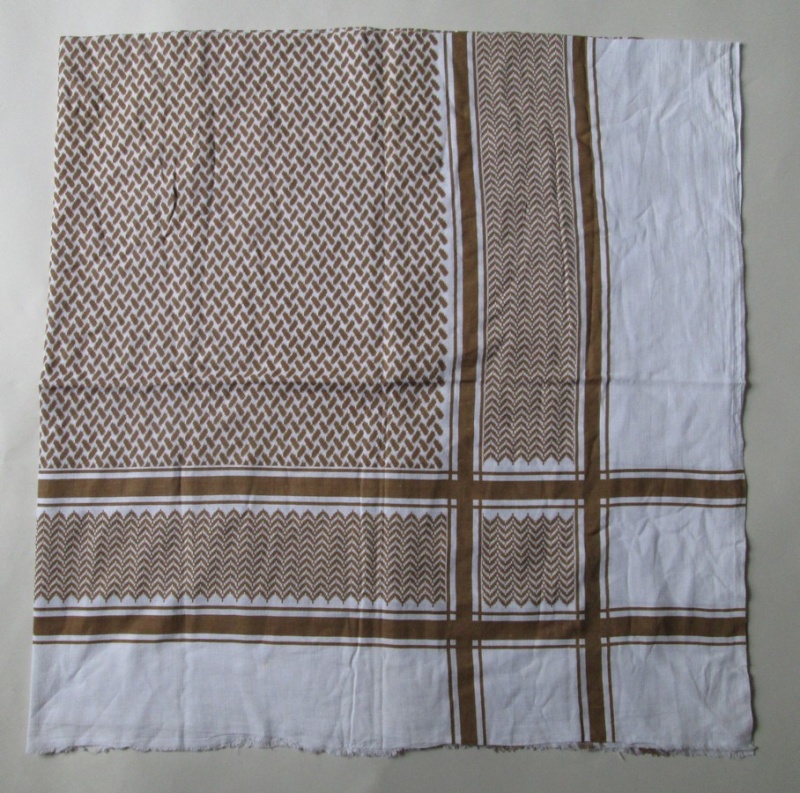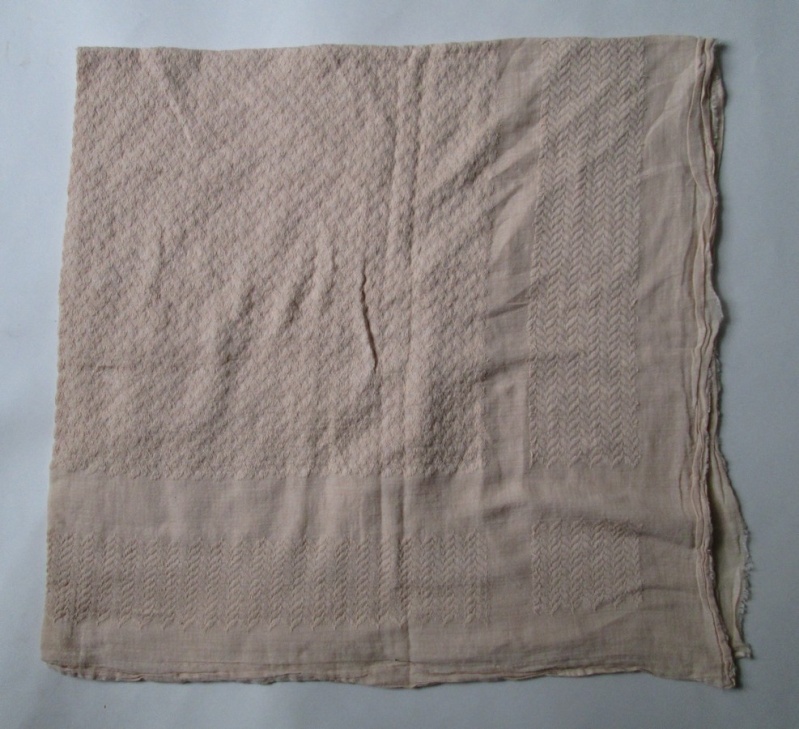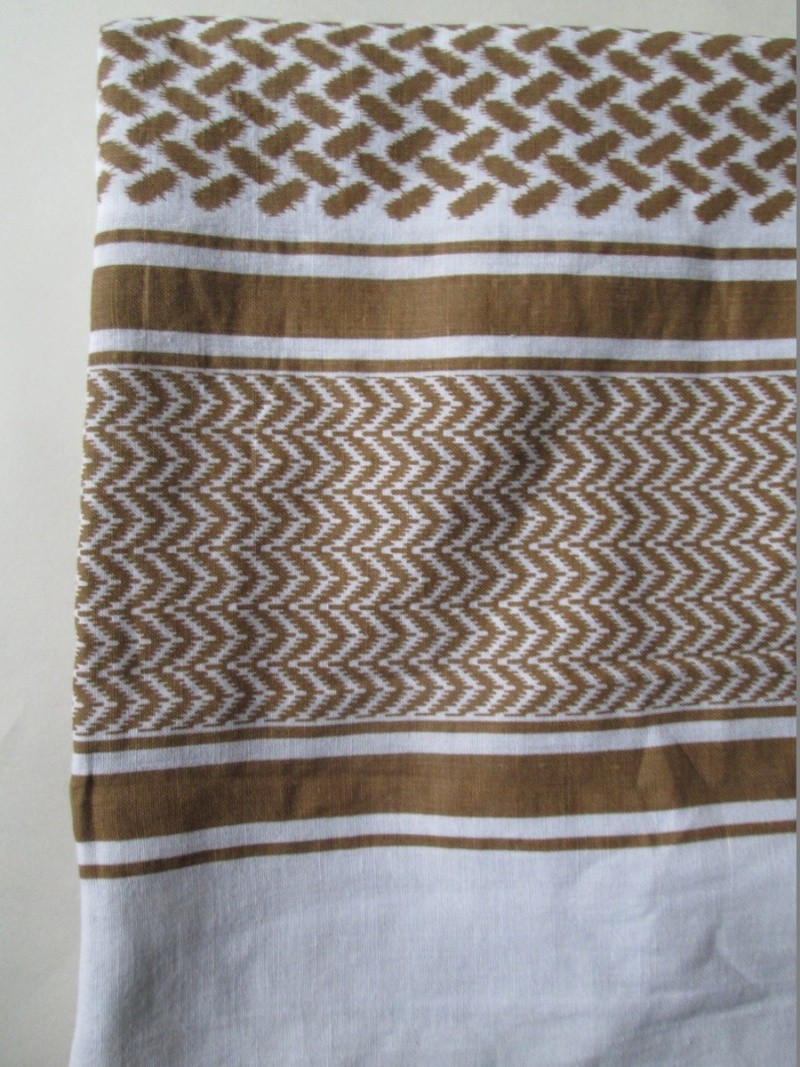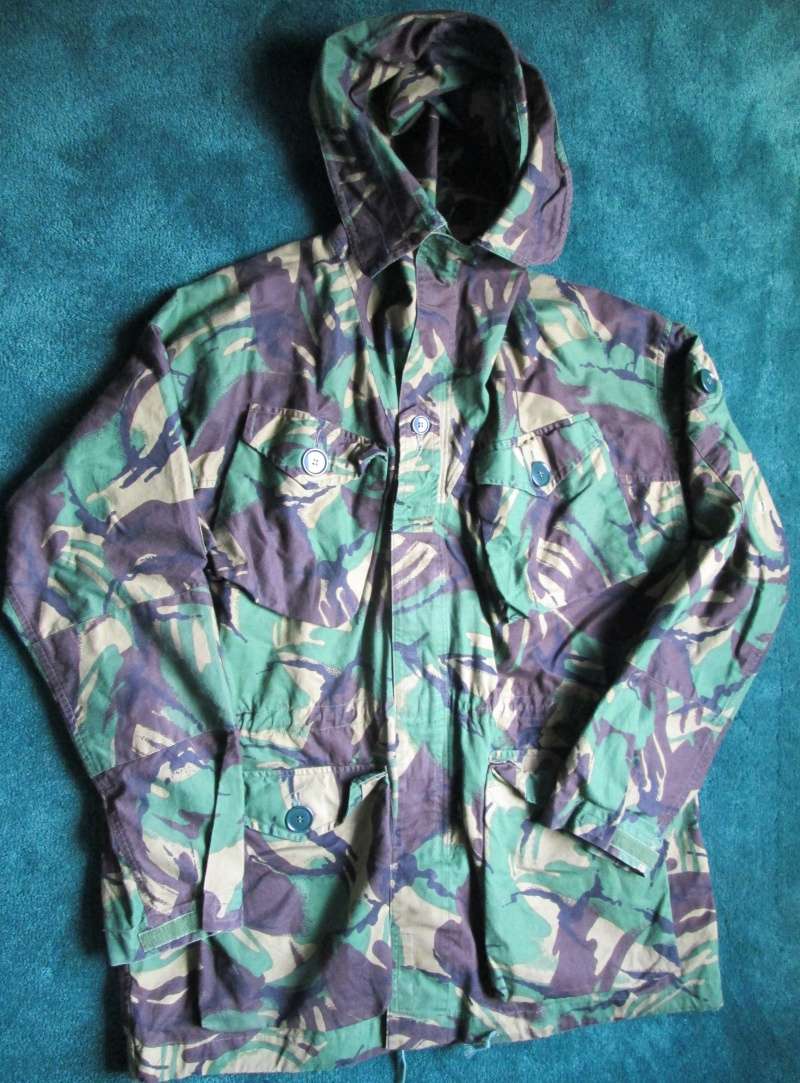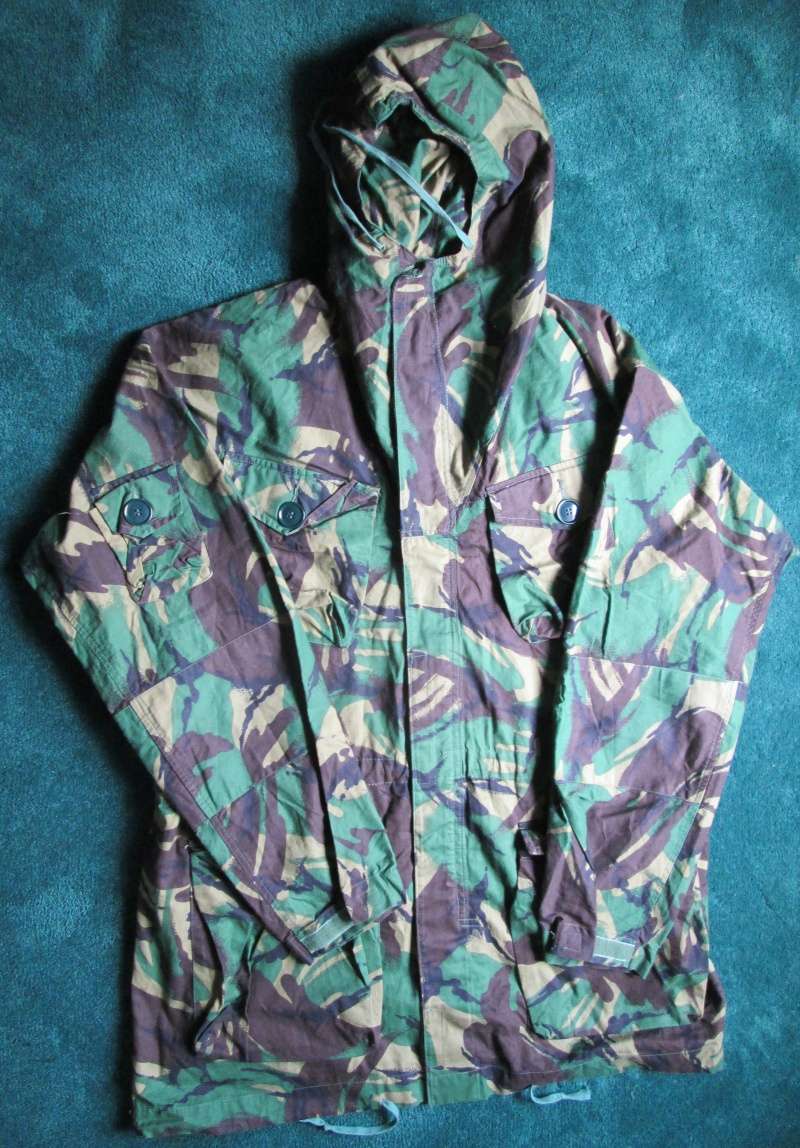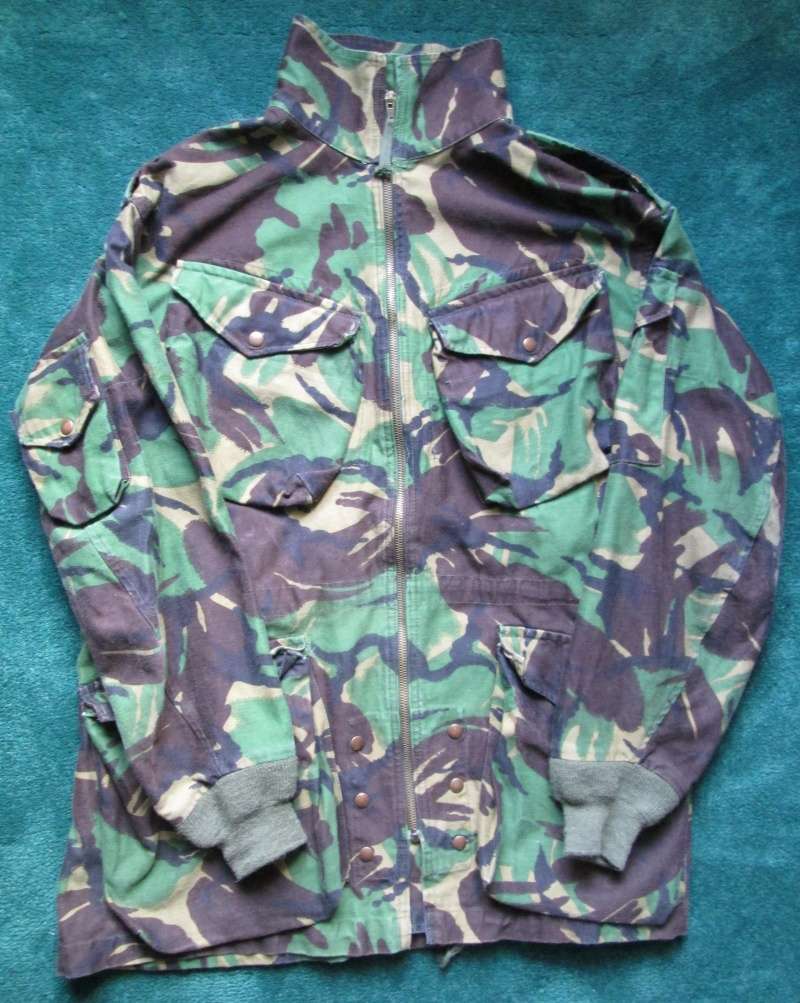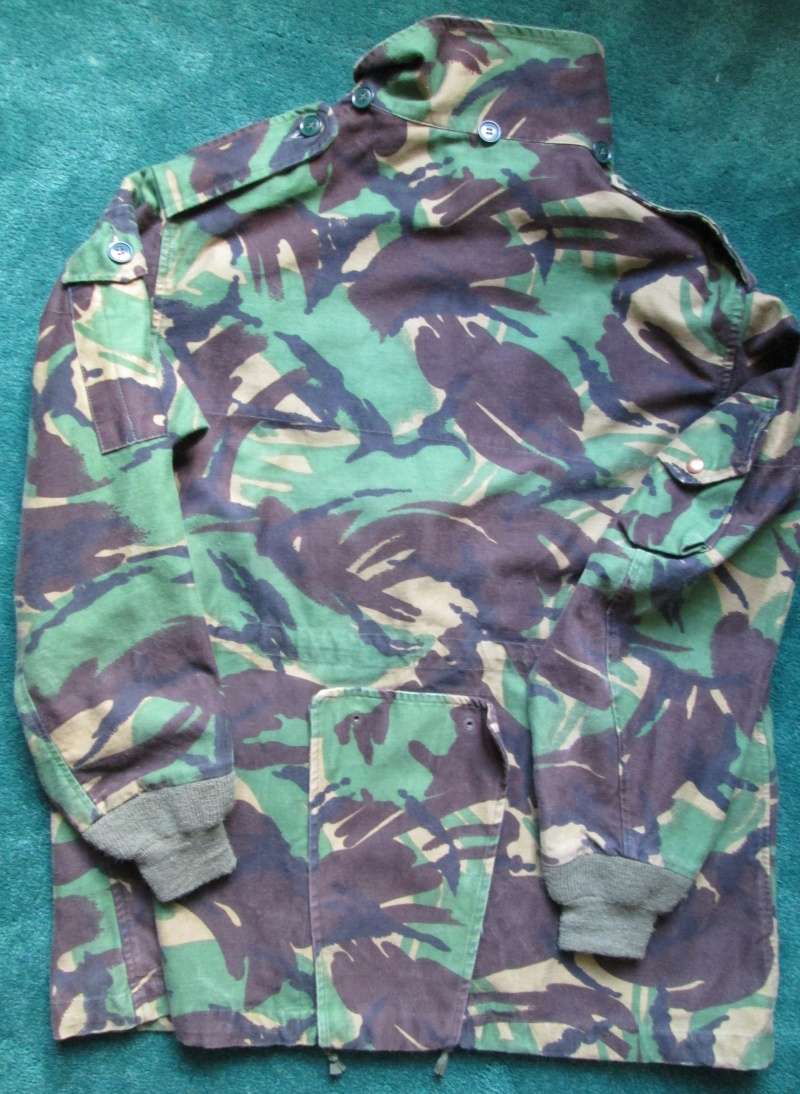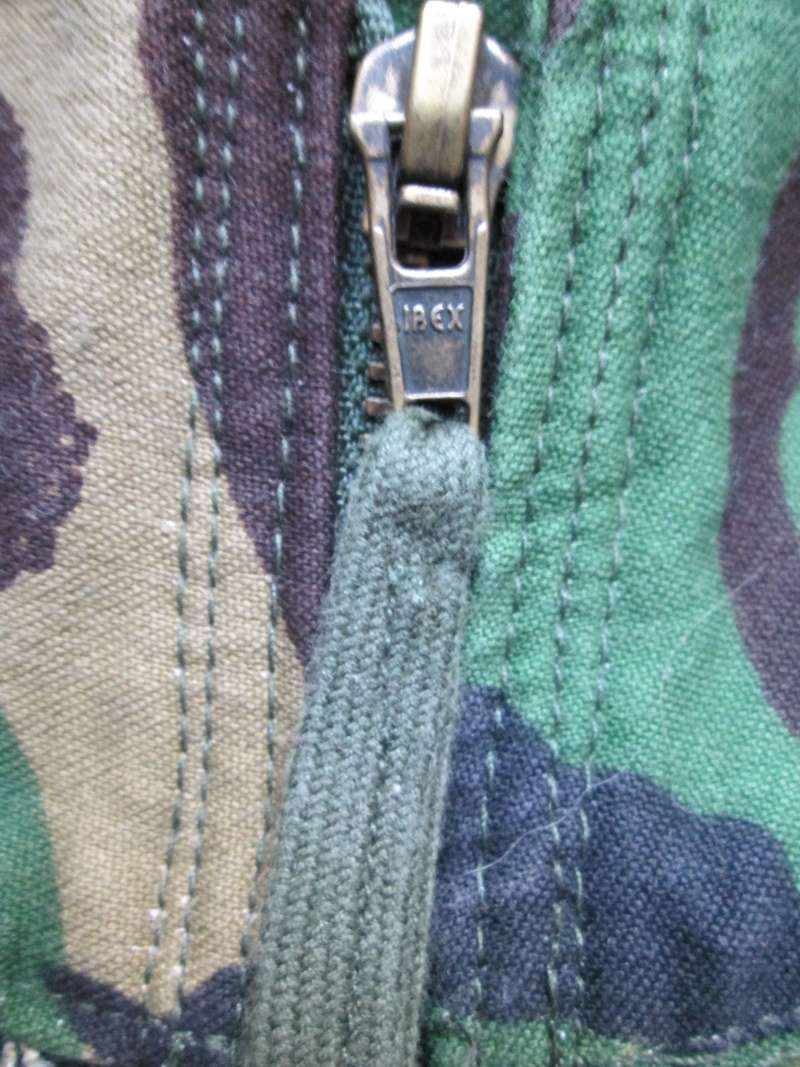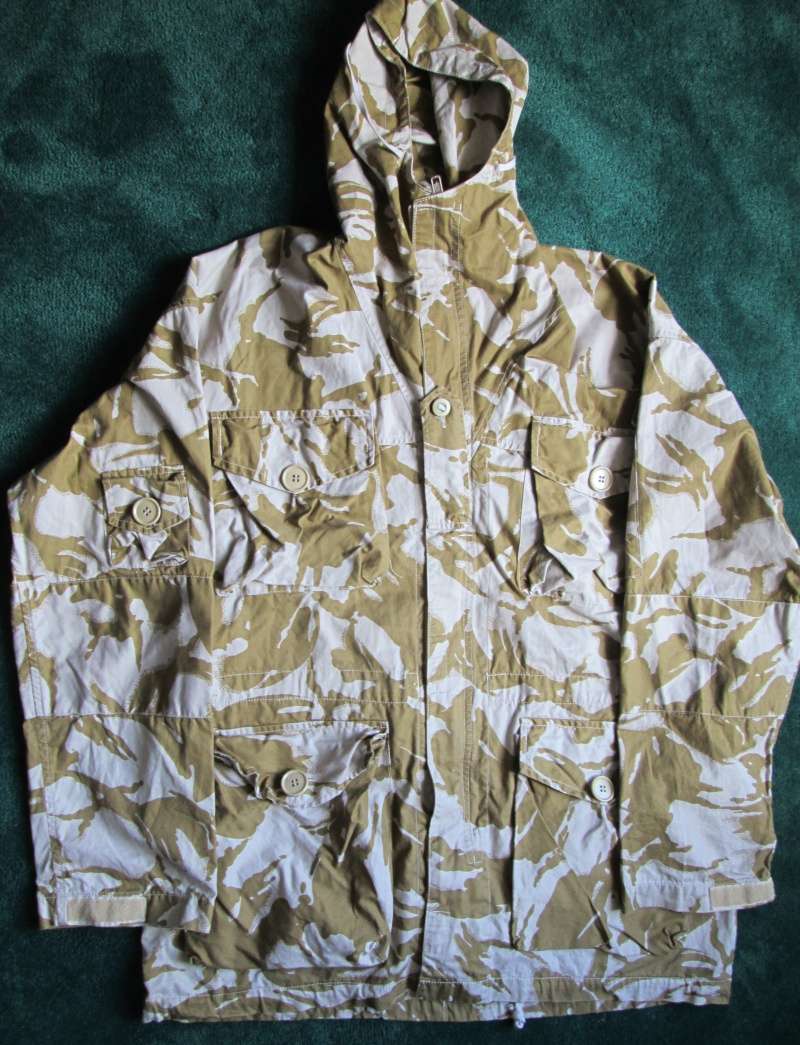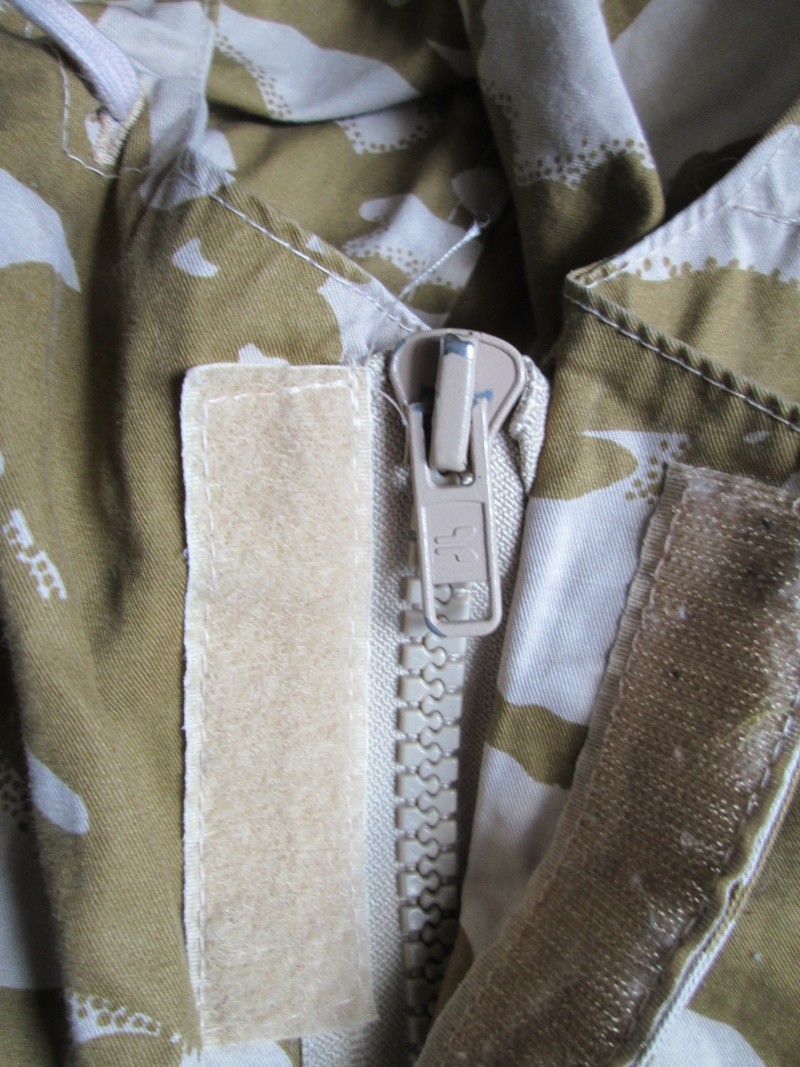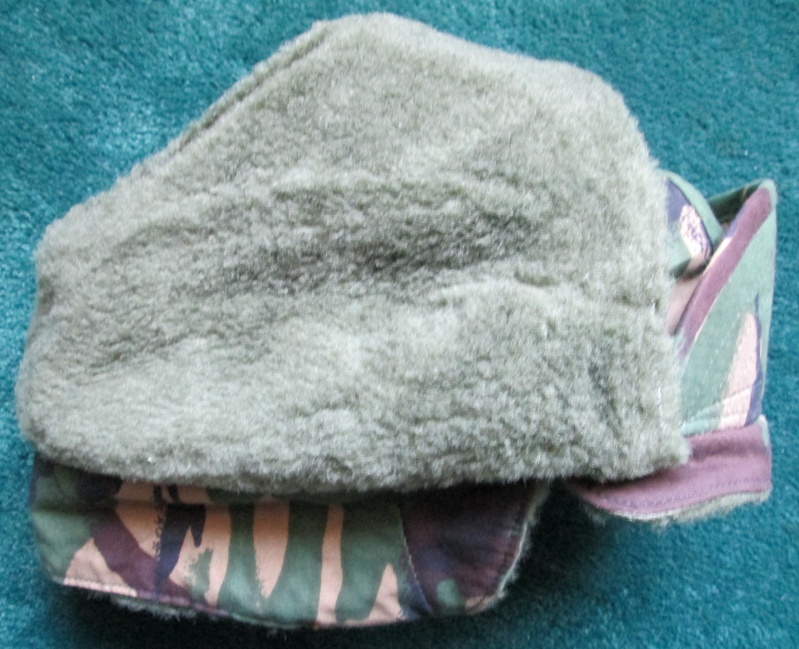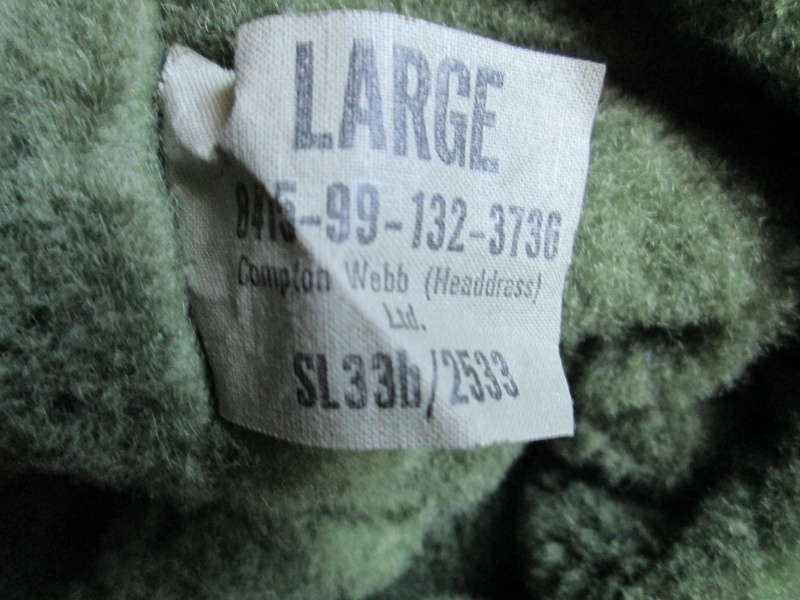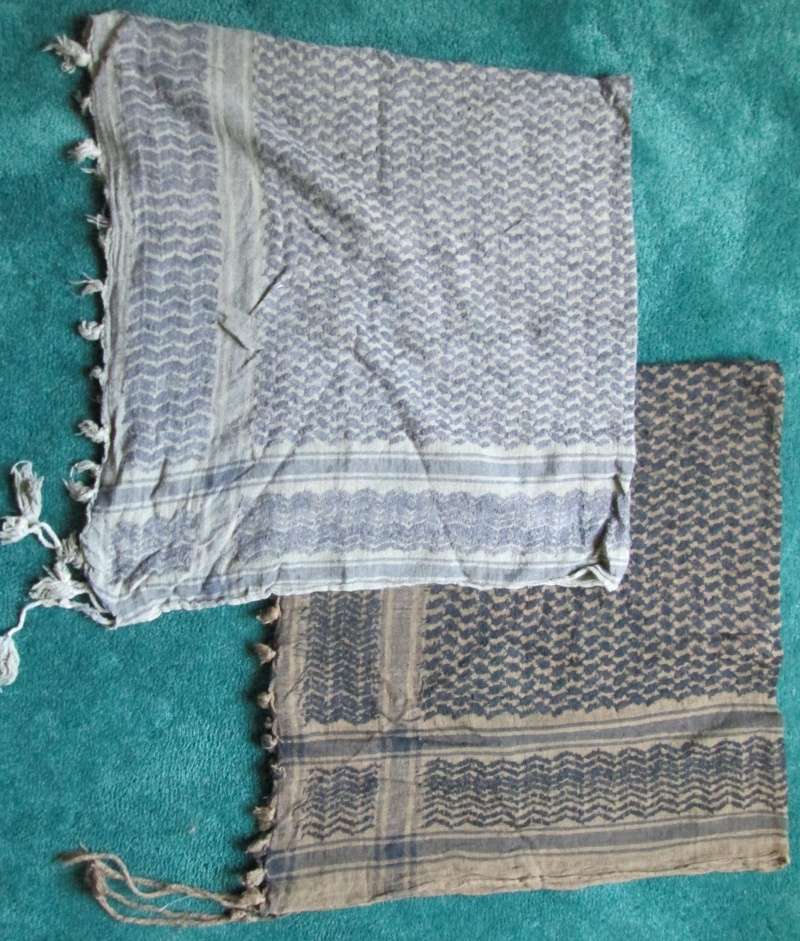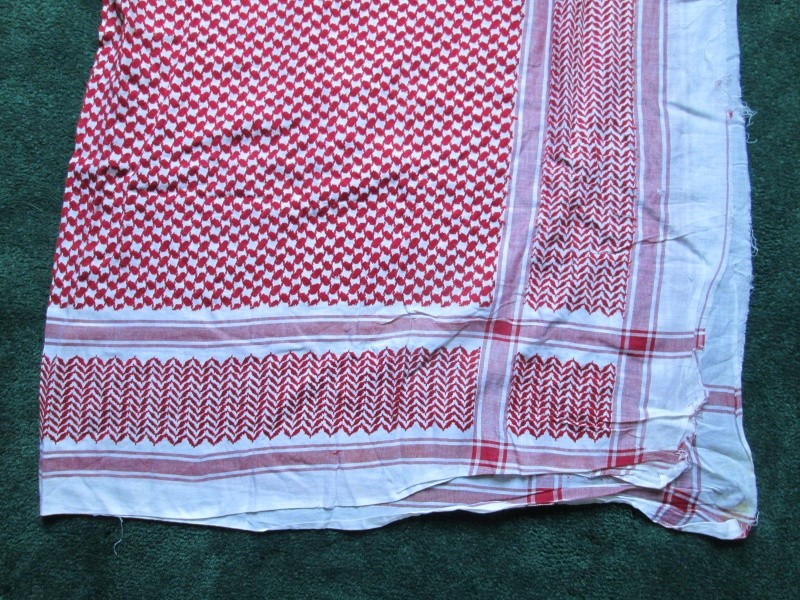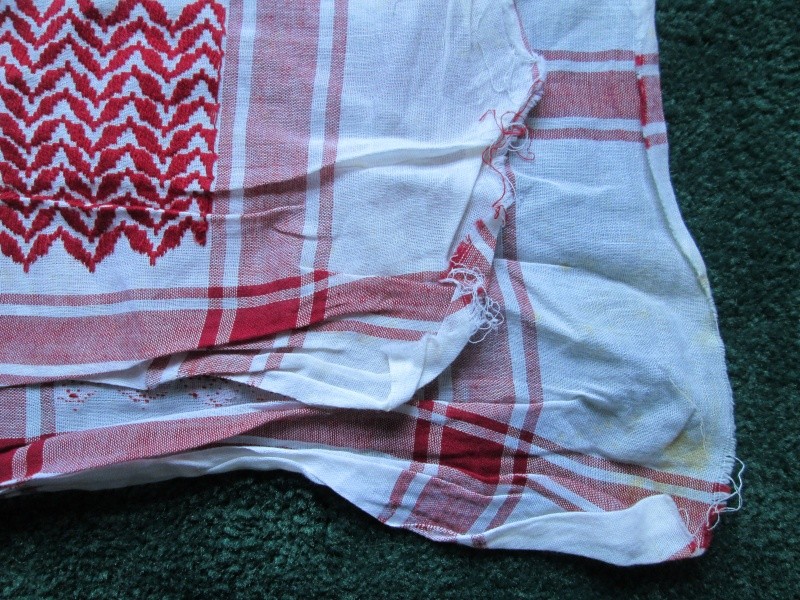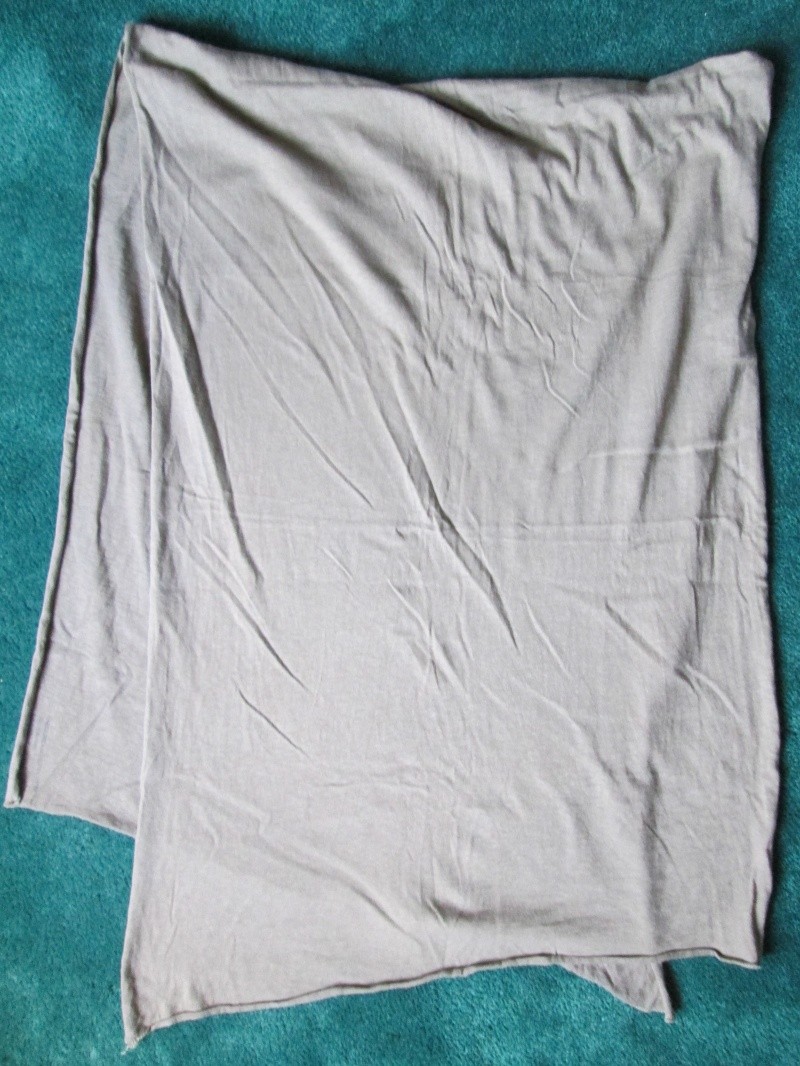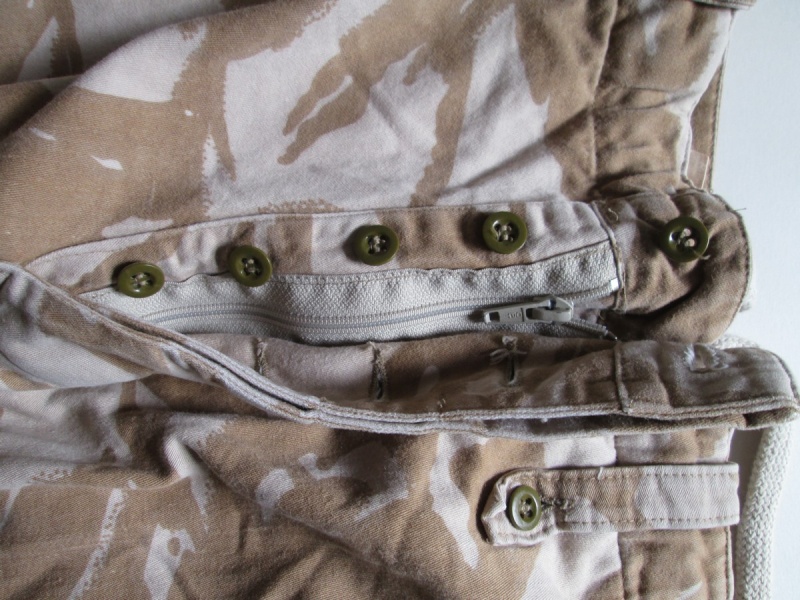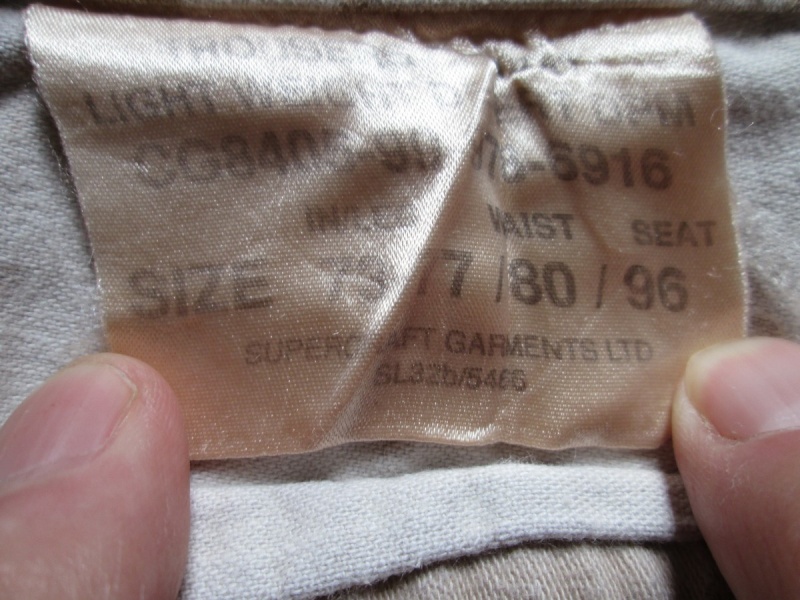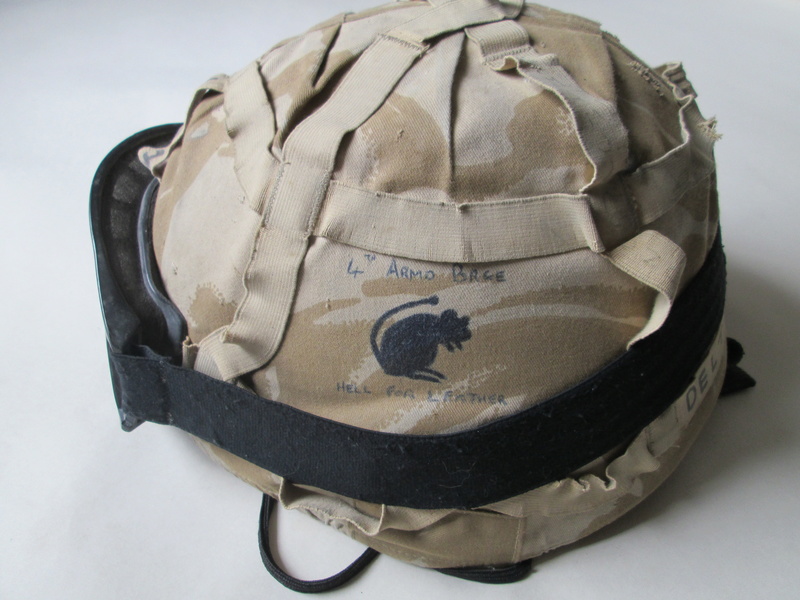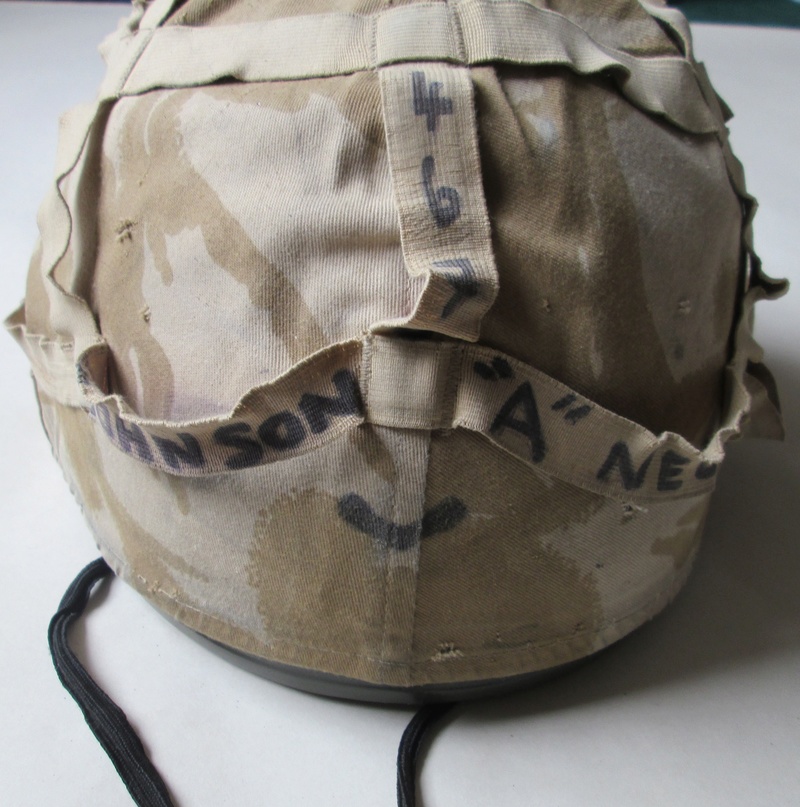 by Edward53 Sat Sep 26, 2015 10:59 am
by Edward53 Sat Sep 26, 2015 10:59 am
Since beginning this thread I have learned of a 2-part 1991 Military Illustrated (issues 41 and 42) article on by a Major Tanner entitled "The British Soldier In The Gulf". I have been unable to find out anything about Major Tanner, but he wrote an excellent and extremely helpful guide which has filled in quite a few gaps and I hope he won't mind me quoting it here: "As cold, wet weather developed during the winter months many varied items of clothing appeared...An entire squadron of the 1st Armoured Division Signal Regiment wore a UK-manufactured desert smock made to the same design as the arctic windproof smock. Most commonly worn were various items of temperate clothing, invariably worn with desert combat trousers".
If anyone wants a copy of this article, PM me and I'll send one assuming I'm not deluged with requests.
I believe the smock shown here to be one of the UK-manufactured smocks referred to above. Although not quite the same as the arctic smock - it lacks the ungainly hood - it has had front and rear rank tabs, now removed, and the only logical reason for the green zip is that sand-coloured zips weren't yet available, indicating rushed early production. The smock has had a nylon "sniper" tab attached, though when this was done is not clear as early smocks might have been worn during any later campaign.
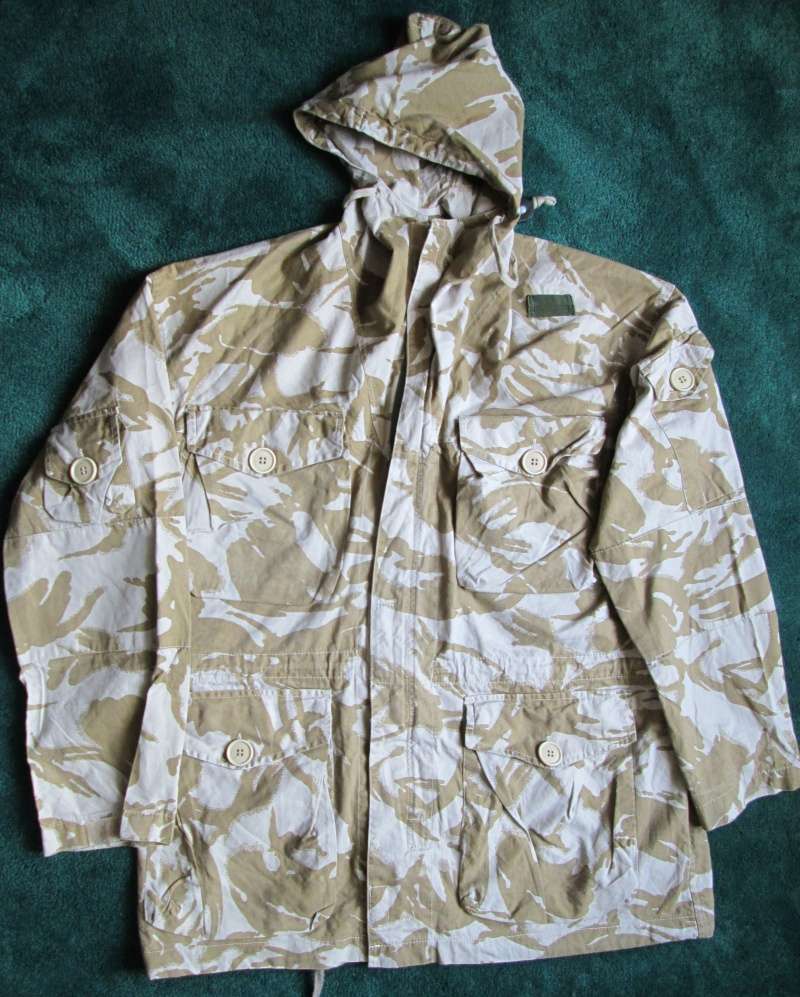
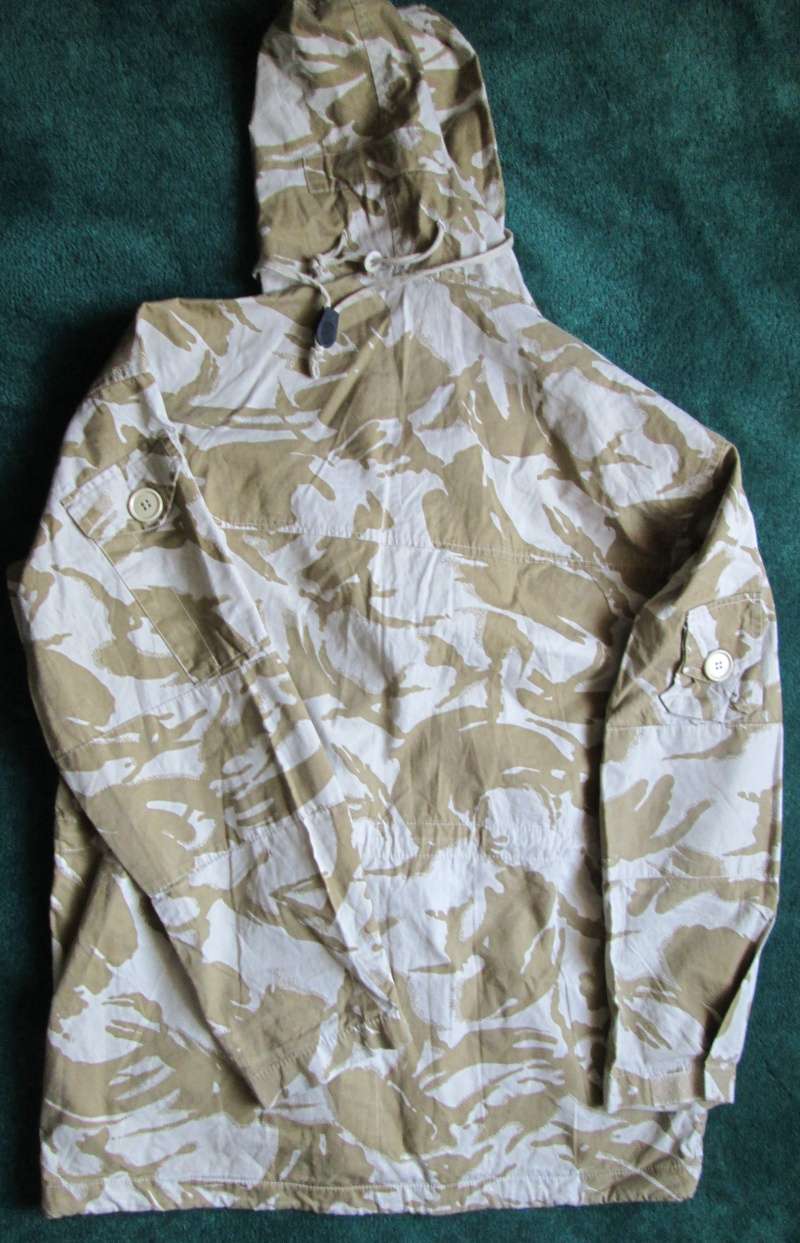
The only marking is a tiny XL label in the back:
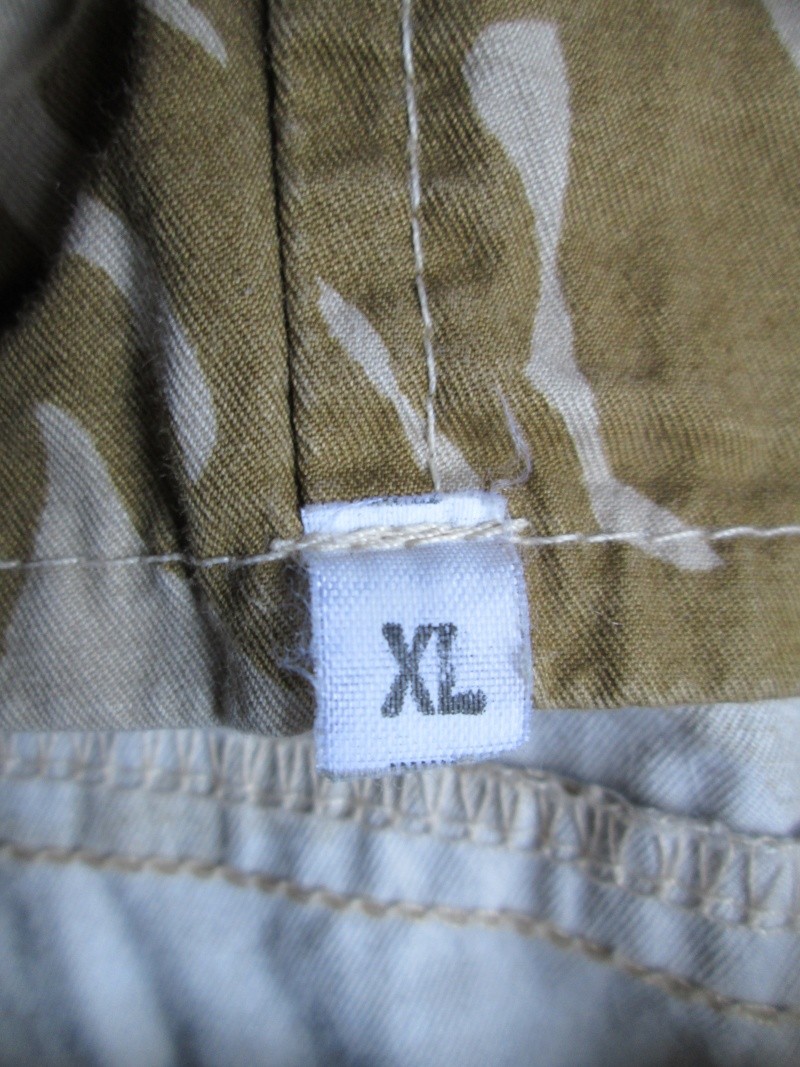
Note the green YKK zip:
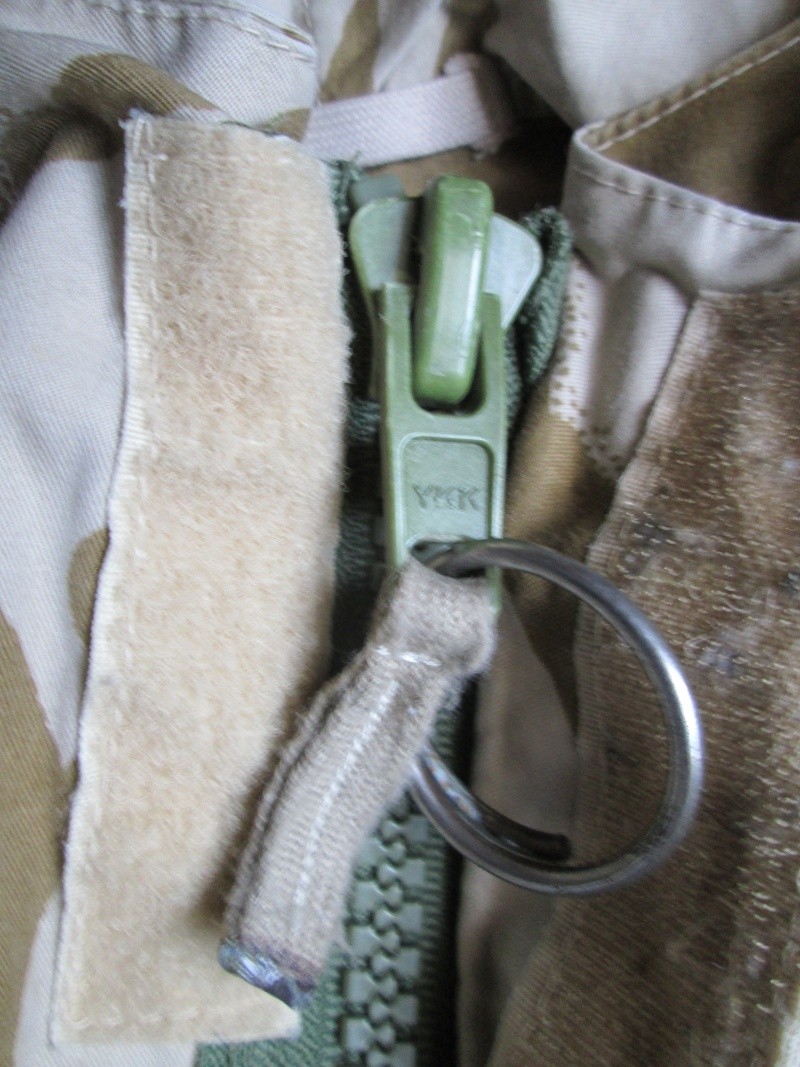
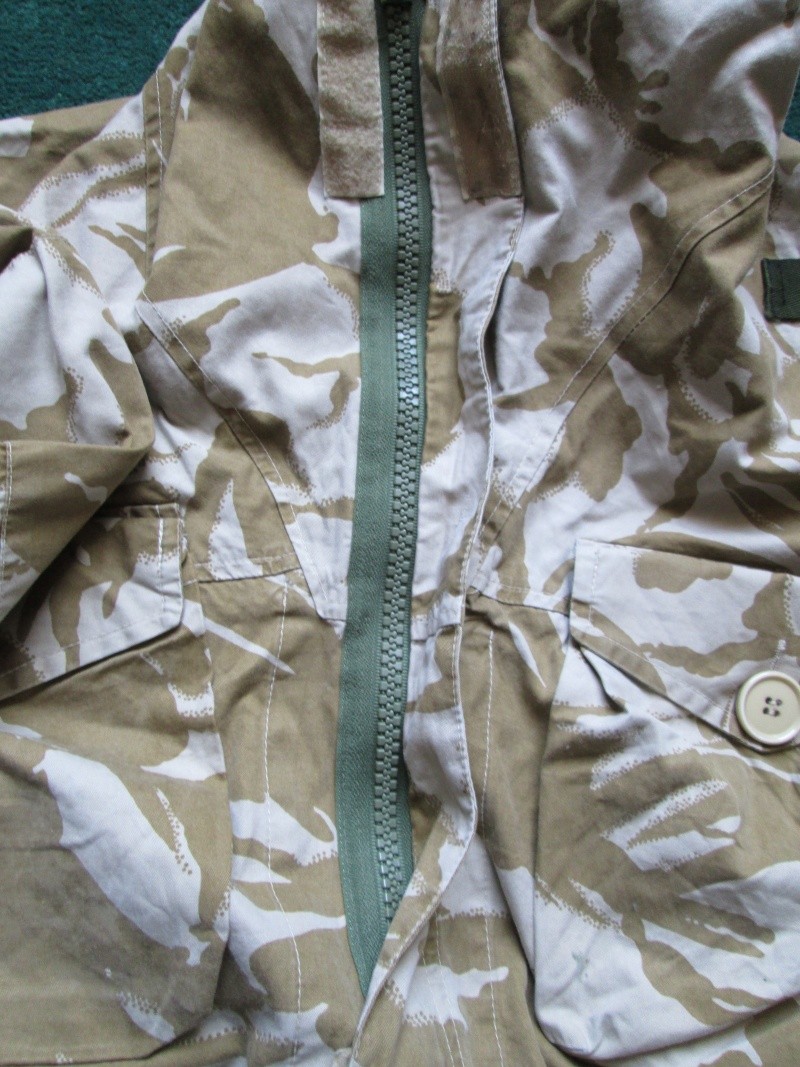
Note also the "Canadian" button threaded on behind the hood for no obvious reason:
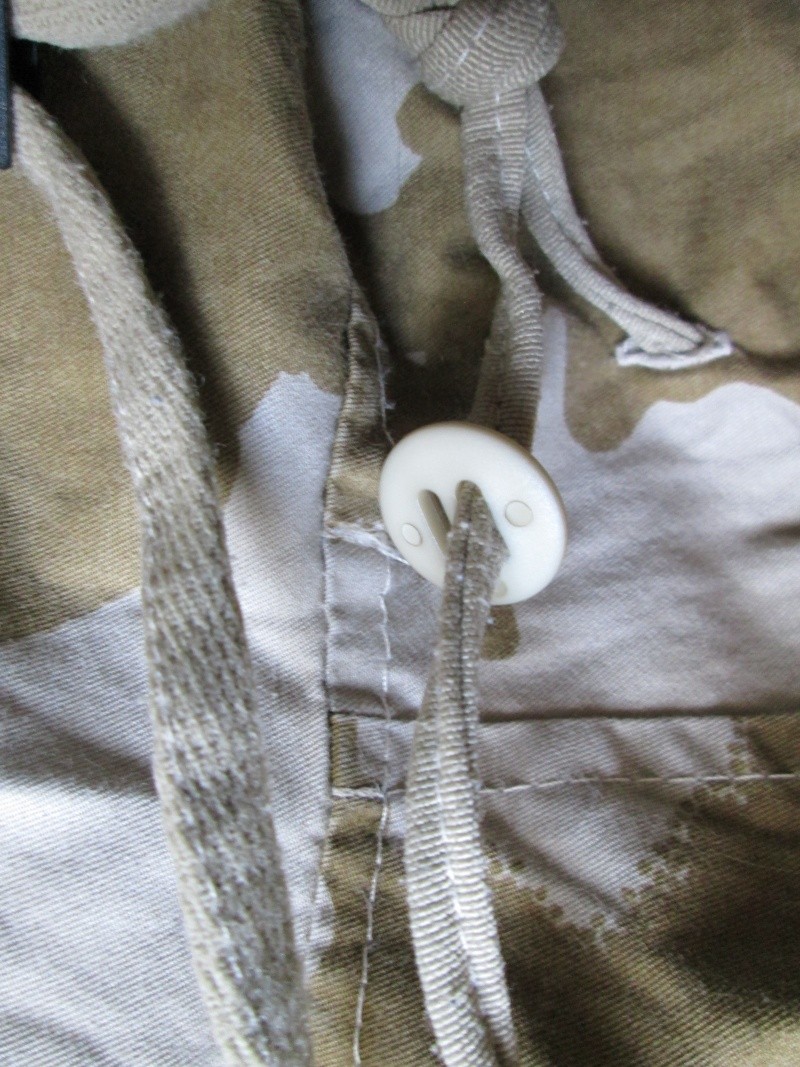
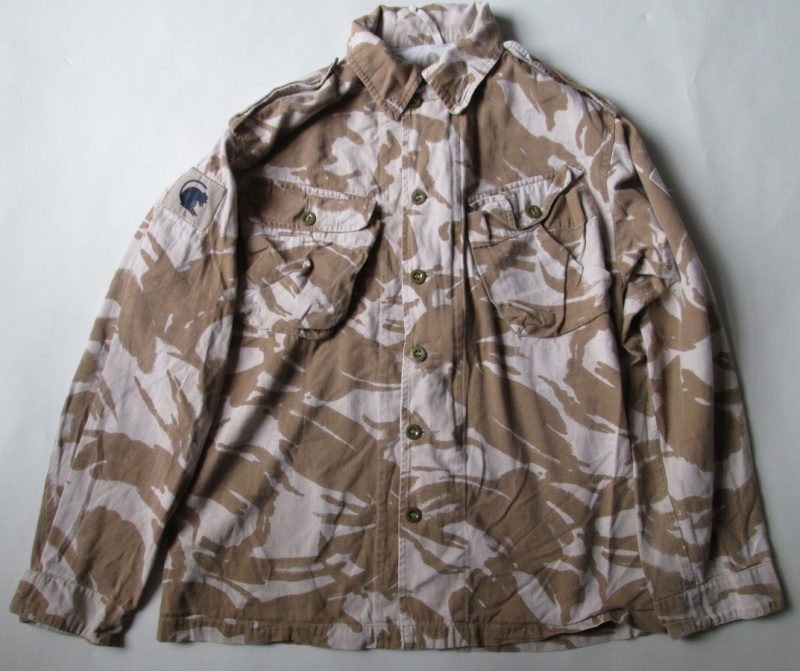

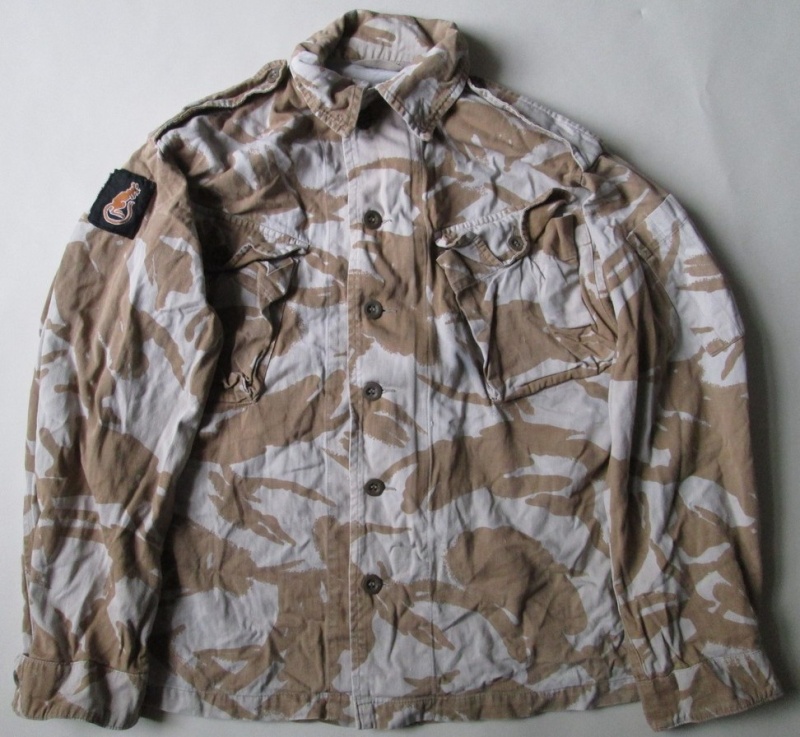





 by Edward53 Sun Oct 26, 2014 11:57 am
by Edward53 Sun Oct 26, 2014 11:57 am